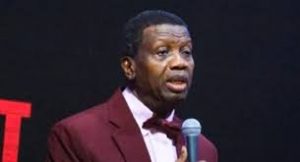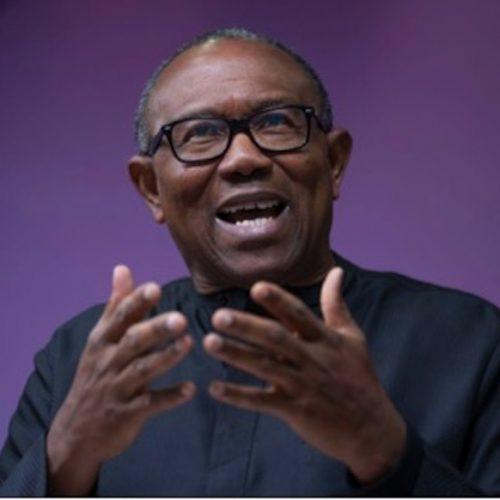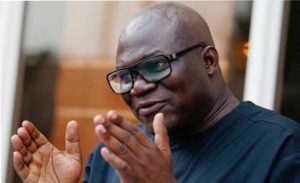Today would have marked the 80th birthday anniversary of the late Major Afolabi Ogunmekan whose promising life and career were cut short before a military firing squad in the aftermath of the Buka Suka coup in 1976 which culminated in the deaths of Murtala Muhammed and Ibrahim Taiwo, the then military governor of the then Kwara state. A tragic common thread in the fates of the two men was that they were heavily implicated in the horrendous massacre that took place in Asaba during the Nigeria/Biafra civil war.
The late Major was the only Yoruba executed in the vengeful and mass hysteria that followed the death of the duo on Friday 13th February 1976. The majority of those who suffered the ultimate fate were of middle-belt provenance. Major General Ilya Bissala, a divisional commander during the civil war was the then Defence minister under the late Head of state was also executed with a vengeance.
I came to know Major Ogunmekan through his fiancée, Philomena Isong, who was then my Literature teacher at Igbobi College, Lagos. She specialized in African literature and simplified the haunting poems of Christopher Okigbo to her students. Okigbo’s ‘Heavensgate’ was our primary syllabus course but she introduced me to the equally prophetic ‘Path of Thunder’ (poems prophesying war) and the entire gamut of the poet’s works. She took me under her wings and her flat became my second home in the school. An extraordinarily beautiful woman, she was called ‘Finumidun’ behind her back by mischievous and irreverent students—a tribute to her sunny disposition. As a member of the second batch of the National Youth Service Corps, she was retained by the school despite the pressing needs of her home state and her undeniable brilliance.
Major Ogunmekan was a constant visitor. The late Major also introduced me to the unforgettable works of Henry Miller (The Rosy Crucifixion: ‘Sexus, Plexus and Nexus’; ‘The Air Conditioned Nightmare’, ‘Tropic of Cancer and Tropic of Capricorn’, etc. I used to tag along with her fiancée to Fela’s Shrine on Saturdays and Sundays. Aunty was uncomfortable with my tagging along but not the fun-loving major in his rickety Volkswagen. Visits to the Afrika Shrine ended abruptly when Fela started showing interest in the beautiful lady.
Tragedy struck on the 12th day of February 1976. The Major had gone to the Stadium Hotel owned by the late high-life maestro Victor Olaiya to ‘cool’ down after a game of squash at the National stadium. He met two of the coup plotters and gave them a cursory greeting. They invited him to join them for drinks. The coup plotters did not inform him of their impending mission the following day because they did not trust him. This fact was established before the subsequent military tribunal that tried the ill-fated men. Another tragic irony of this military self-immolation was that the secretary of the military tribunal which pronounced death sentences was one Mamman Vatsa who was also controversially fated to face a military firing squad engineered by his lifelong friend in 1986. He was the best man at Babangida’s wedding. No paddy for jungle!
A military doctrine enunciated by T.Y. Danjuma and wholeheartedly endorsed by the Supreme Military Council was to the effect that a pre-knowledge of an impending military rebellion and not informing the powers that be is tantamount to participation and the consequences of failure are the same—death by firing squad. This knee-jerk doctrine was to haunt the military itself; notably Olusegun Obasanjo in 1995 and the unfortunate Major Tunde Bamidele in 1986. Bamidele had informed his boss Major General Muhammad Buhari of the impending December 1983 coup that toppled the inept and corrupt Shehu Shagari; not knowing that Buhari was in the thick of the plot and becoming the head of the government that removed Shagari and his cabal of juvenile thieves (with the benefit of hindsight).
At the stakes, there was a look of ironic and amused bewilderment on the face of Ogunmekan. The other condemned men went to their deaths with military mien; knowing the iron logic of a failed coup. Zakkariya, the brother of Victoria Gowon who supplied the coupists with the classical music they aired on radio during the coup hours from the NBC library was brutally shot leaving him sprawled on the blood bespattered canvas of the stake. Only Bissala protested his innocence to the end. The gory sight of his eye sockets fully justified the grisly tasks of the handpicked marksmen. The men who did Murtala in knew what they were doing. Most of them were critical of the numerous past misdeeds of Muhammed and had no compunction in terminating his life despite his Damascene conversion late in life.
Settling fatal scores after an unsuccessful bid for power offered the high military echelon the ultimate means of getting rid of real and perceived enemies, in some cases for personal and banal reasons. Ogunmekan’s fiancée was believed to have vigorously spurned the amorous advances of a member of the supreme military council. Colonel Wyas sealed his own fate by criticizing the conduct of superiors at the famous battle of Awomama where the Biafrans stood their ground and inflicted severe losses on Federal soldiers. At the stake, he told his executioners to tell his British-born wife to quit the benighted country immediately as he was being killed for nothing. Ogunmekan sent a farewell message to his family and his by-now distraught fiancée.

Aunty Philomena was inconsolable. She did not open her doors until the Principal of the school, Chief Olatubosun (I will cane you as I caned your father! He had been principal since 1950 when many of the fathers of his present wards were students) ordered the school carpenter to open her door. Lo and behold. Lying on her bed with the picture of her loved one covering her face; on the bedside table was a vial of pills. She died of excess of sorrow in contradistinction to Kepkanly, the anti-hero of Okigbo’s “Heaven’s Gate” who died of excess of joy when he had a pay rise.
Colonel Wyas’s wife also committed suicide by ramming her car into a tree. Collateral damages in a dance of death.
In 1986 it was the turn of self-styled president Babangida to prove a point to potential jostlers for power. In a semi-proven plot against his kleptomaniac regime, he had the best man at his wedding and a host of ‘innocents’ executed ‘some hours ago’ ignoring pleas for mercy from most Nigerians including Achebe, Soyinka, and Clark. “If I can kill my best man and the cream of the army to boot, who dare defy me?” he implied.
Vatsa in his last speech before his death sentence affirmed that the Army was setting itself up when it acted with brazen impunity and played politics with the lives of its soldiers. There was Folorunso Martin Luther, an ace pilot who had flown four presidents before his execution along with Vatsa ostensibly because a damsel preferred him to a frog-like member of Babangida’s Armed Forces Ruling Council. Luther flew Babangida to Minna on the eve of his palace coup against Buhari. The idea was for him to fly Babangida to Mubarak’s Egypt in the event of the palace coup’s failure leaving his co-conspirators in the lurch. On the eve of his arrest, Babangida patted him in the back at the airport for a job well done in the course of his duties.
Vatsa knew he would be killed. Luther thought otherwise but rejected his last meal of jollof rice when a prison warder whispered in the morning that their stakes had been prepared. A video of the execution was rushed to Babangida by sycophants at the NTA. He is said to have gloated over the death throes of his victims while his wife refused to watch; not out of squishiness but for the unspeakable betrayal of it all.
In all these mindless blood lettings, the civilian populace felt it was all a military affair that did not concern them. How naïve!They trooped in their thousands to witness the execution of Bissala and Co out of morbid curiosity and their uninformed reasons behind the executions. All they felt was that a national hero had been felled and retributive justice must be meted out. Cursed is the nation in need of heroes. Either out of the universal disavowal of the Vatsa executions or the shame and perfidy of it all, the public did not witness them but the stage was inevitably for the bloodiest military coup in Nigeria.
The Vatsa executions were a double-edged affair. If a man could execute his best man and others on unproven charges, then nobody was safe, some elements in the iron ruler’s immediate constituency reasoned. They had silent support among the civil populace. Ex-servicemen, civilians, and soldiers, the majority of whom were from the middle belt travelled from Ikorodu the length of Lagos to assault the seemingly impregnable seat of power in Dodan Barracks and carried out a devastating and no-holds-barred suicidal attack. Babangida and his family escaped by the skin of their teeth through Babangida’s defense chief and veteran coup plotter, Sani Abacha.
Abacha laughed when he got to know that the military signal lines were secure. He concluded that the rebels were rank amateurs when coup planning was involved. He was able to extricate his boss from a potentially fatal situation and got the unwritten approval of future succession. Hence the Khalifa cognomen. A tall order for a man famous for breaking his promises serially with a smile! They both agreed that the rebellion should be soaked in blood. No quarter was given despite the silent support for the failed coup among civilians and critically among soldiers who helped some of the plotters escape certain deaths. Babangida fled Lagos for Abuja, making the latter a virtual fortress and naming his seat of power Aso Rock totally blind to the impending ignominy of ‘stepping aside’ from power he so much bloodily coveted.
The Orkah coup was soaked in blood. Prison warders said that their compound heaved with blood. The only Nigerian journalist, Seye Kehinde, who smuggled himself in to witness the unprecedented executions said in the African Concord that the condemned men sang to the stakes. The civilian populace was bystander in this dance of death. A collision between a docile populace and those who then had a monopoly on violence was inevitable. The annulment of June 12 1993 was the inevitable fallout of the in-your-face mentality of the military. The backlash against the annulment came as a surprise to the arrogant mindset of the military and their minuscule civilian elite collaborators.
The military arranged the 1999 handover to a man they thought they could do business with and who could do minimal damage to their baleful legacy. Now, the monopoly of violence has been broken by various groups with a vicious critique of the iniquitous system in place since independence. The elites have exhausted their historic possibilities and the stage is set for a collision of altars and a bloody dissolution of an enterprise that was still born at birth.
The last stanza of Okigbo’s ‘Path of Thunder’: An old star departs waiting for a new star to appear/before a going and a coming that goes on forever.
Afolabi Akinbola is an Ibadan-based historian and global affairs analyst. He can be reached via akinbolaafolabi152@gmail.com or 0817 546 7182.


















